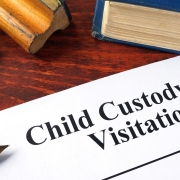How to Get an Uncontested Divorce in Massachusetts
In Massachusetts an uncontested divorce is called a no-fault 1A divorce. In a 1A the couple jointly petitions the court to review and approve their separation agreement, which is the divorce agreement (a confusing misnomer for those already separated). The couple will have already come to agreement on all terms of their divorce, including the division of assets and liabilities and for parents, the parenting plan.
Options for Pursuing an Uncontested Divorce in Massachusetts
There are three ways to pursue an uncontested divorce in Massachusetts:
- Do-it-yourself divorce
- Divorce mediation
- Collaborative divorce
Do-it-yourself divorce:
It is possible to file for divorce on your own. The benefit of doing so is that it is the quickest and least expensive approach. It is best suited for short-term marriages with minimal assets and no children. The disadvantage is that for parents and/or couples with assets it be can difficult to make informed decisions about very important matters (your kids and your money) without the guidance of a divorce professional. Unfortunately, it is common for do-it-yourself agreements to be rejected by the court (and I have mediated agreements for couples who first tried to file on their own to then have a judge fail to approve the agreement).
Divorce Mediation:
Divorce mediation is the next most cost-effective process. The mediator facilitates the divorce negotiation and provides important information to make sure informed decisions are made. If there is disagreement the mediator will help the couple resolve their conflicts. The couple remains in control of their decisions and can determine the pacing of the process. Mediation is confidential which can help couples negotiate in good faith. Mediation is also voluntary and is effective for both amicable couples and couples experiencing high conflict…as long as both spouses choose to participate.
Collaborative Divorce:
Collaborative Divorce is a team approach to divorce. Both spouses hire a collaboratively trained attorney. A divorce coach facilitates the process. The coach works with the couple to support their participation in the process. The coach also works with the attorneys to help them function as a team to address the interests of both spouses. The attorneys may only negotiate when in team meetings with the spouses and the divorce coach present. Often, a financial neutral also joins the team to provide financial guidance. Collaborative divorce is more expensive than mediation but usually less expensive than contested divorces. Like mediation, the couple negotiates directly and has control over the outcome. Unlike mediation, the negotiation occurs with their legal counsel on hand to provide direct guidance through the process.
One other uncontested divorce option:
If a spouse has filed a 1B divorce the couple can still participate in Mediation or Collaborative Divorce and change the contested 1B divorce to an uncontested 1A divorce.
To learn more about how mediation or collaborative divorce can help you file an uncontested divorce contact Ben for a free half hour consultation.










